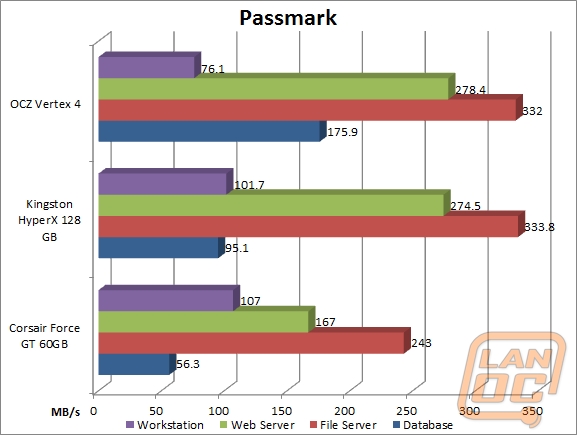Performance


From the last time we published an SSD review, we changed our testing procedures around a little to get a better variety. Along with that we tested a few more SATA 3 drives to fill in our results more to give a better representation of the Vertex 4’s performance. To compete with the Vertex 4 we put it up against the Kingston Hyper X SSD as well as the Corsair Force GT. That covers a good portion of the Vertex 4’s competition. The Kingston and the Corsair both use the same Sandforce SF-2281 controller but the Vertex 4 sports their in house Indilinx Everest 2 NAND controller. That means for the most part we should see similar results from the two drives taking into account other factors like the different capacities. Both the Kingston and the Corsair drives use Synchronous IMFT NAND, but they do differ in manufactures with the Kingston running Intel 5K NAND and the Corsair using Micron NAND. Of course IMFT is a joint venture between Micron and Intel, so the different manufacture names don’t make much of a difference. The Vertex 4 also uses an IMFT NAND, making the controller its main difference.
Our first benchmark was Crystal Disk Mark. Between its Sequential and 4K Queue Depth benchmarks we can get a good idea of the drives real world performance as well as how the drive will respond to a high queue depth. Interesting enough, our sequential read speed results were good but slightly lower than the Samsung 830 that we had previously benchmarked and on par with the Kingston HyperX drive. When you introduce a high queue depth though, the Vertex 4 dominated everyone in both read and write. What else I found interesting was how far ahead the Vertex 4 was in write speed tests overall when compared to the other drives.
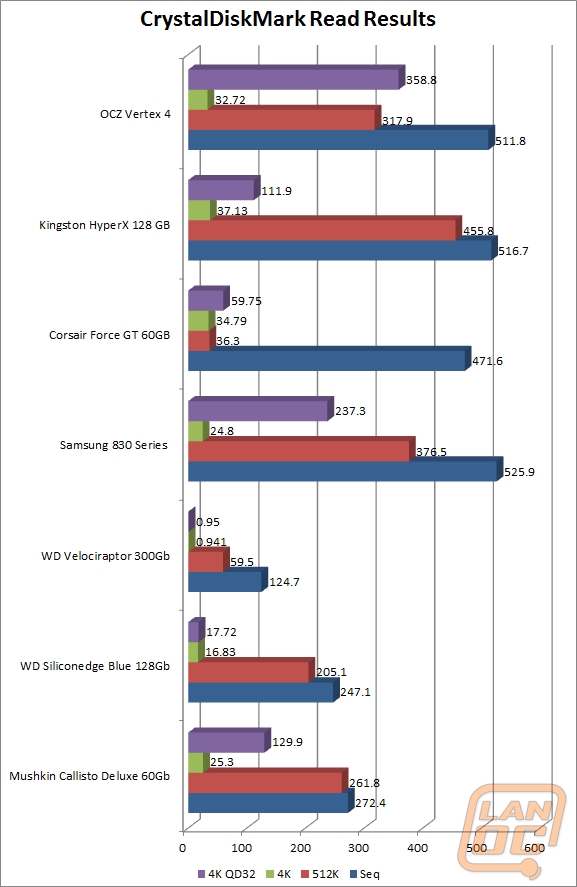
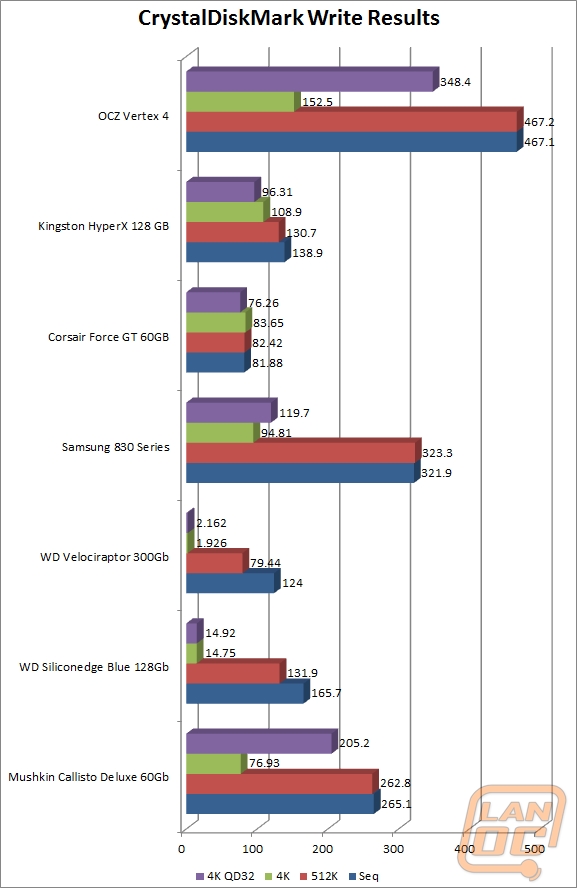
Next up we have IO Meter to put the Vertex 4 to the test when it comes to IOPS. IOPS stands for Input/Output Operations Per Second. We have our IO Meter configured to run Random files, meaning non sequential, at a file size of 4K and a queue depth of 30. This is similar to the queue depth test on Crystal Disk Mark. As you can see from the graph below the Vertex 4 dominated all of the competition tested in IOPS. This means it’s going to be quick and responsive in everyday use, not just capable of high transfer speeds when doing large file transfers. In my opinion, IOPS is the single most important benchmark you can run on an SSD because it most closely represents the results you would see day to day.
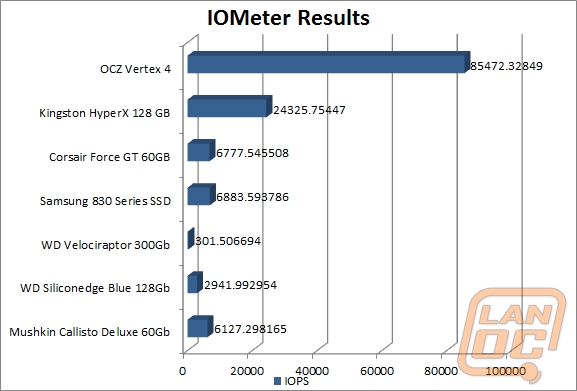
Our last two benchmarks are other freely available programs that allow you to test your drive in very specific conditions that you may run into while using it day to day. Much like IO Meter, these will show a better representation of what to expect when using the drive.
Starting with AS-SSD, we run its three file copy benchmarks. The three tests use a normal program file, game file, and then ISO file transfer as benchmarks on how quick the drive will be during those everyday tasks. As you can see the Vertex 4 outperformed both the Corsair and Kingston drives. Interesting enough, the Samsung 830 popped up here and took the performance crown.
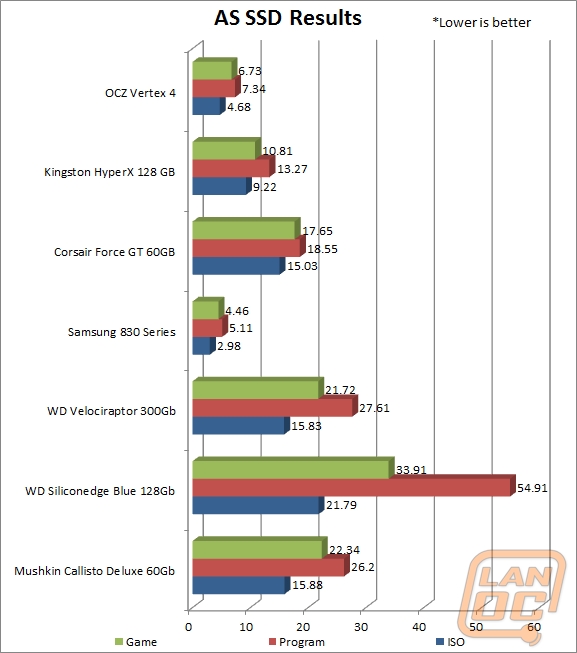
In Passmark we are running very similar tests to IO Meter, but this time around each test represents a blend of random and sequential files and files sizes themselves that best represent what you would see in workstation, web server, file server, and database applications. These are all business focused tests, but the workstation benchmark most closely represents what you would expect from a home PC as well.
The Corsairs results were a little weak, most likely do to its smaller capacity. But The Vertex 4 and Kingston drives went head to head both in the Web Server and File Server benchmarks. The Workstation benchmark had the Kingston drive ahead, but the Vertex 4 made up for it by almost doubling the Database performance. This is similar to what we saw before, the Vertex 4 performs well with the small file size and high queue depth that a database would have.
